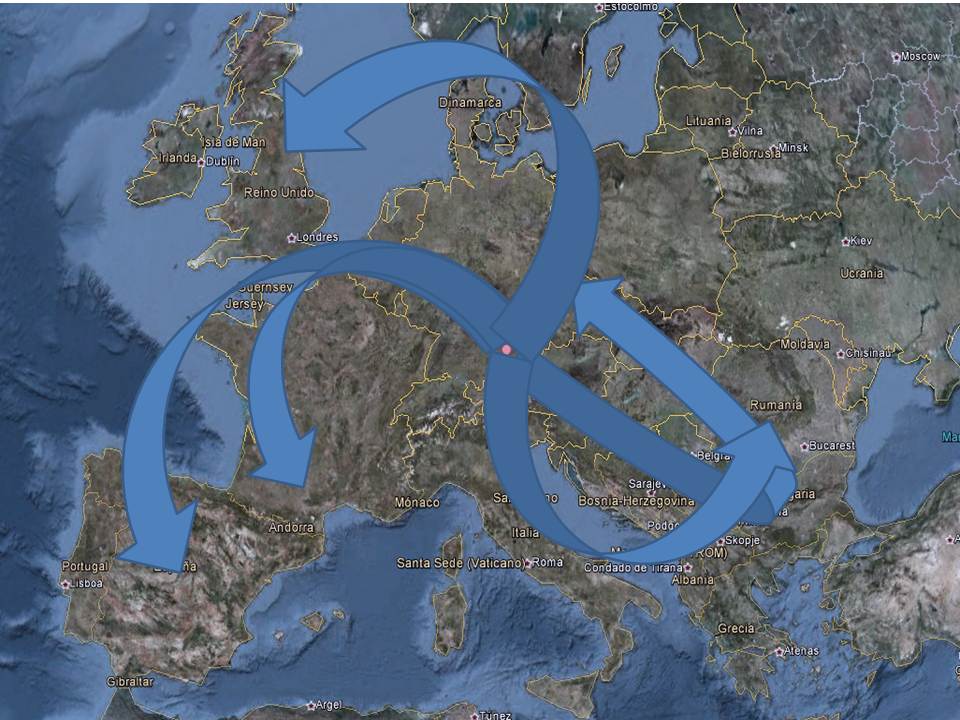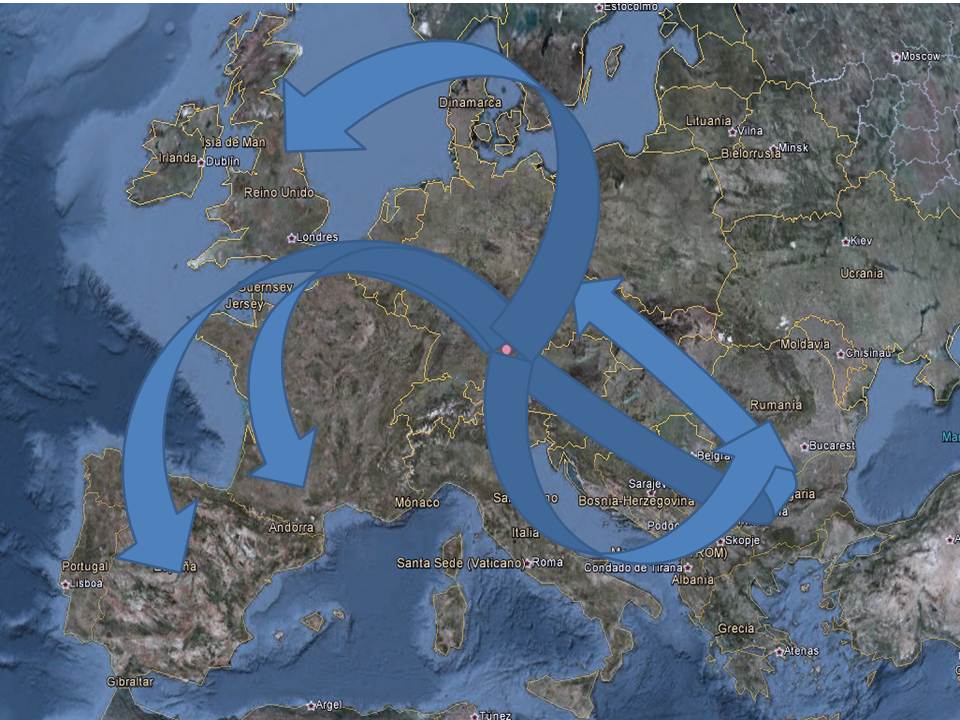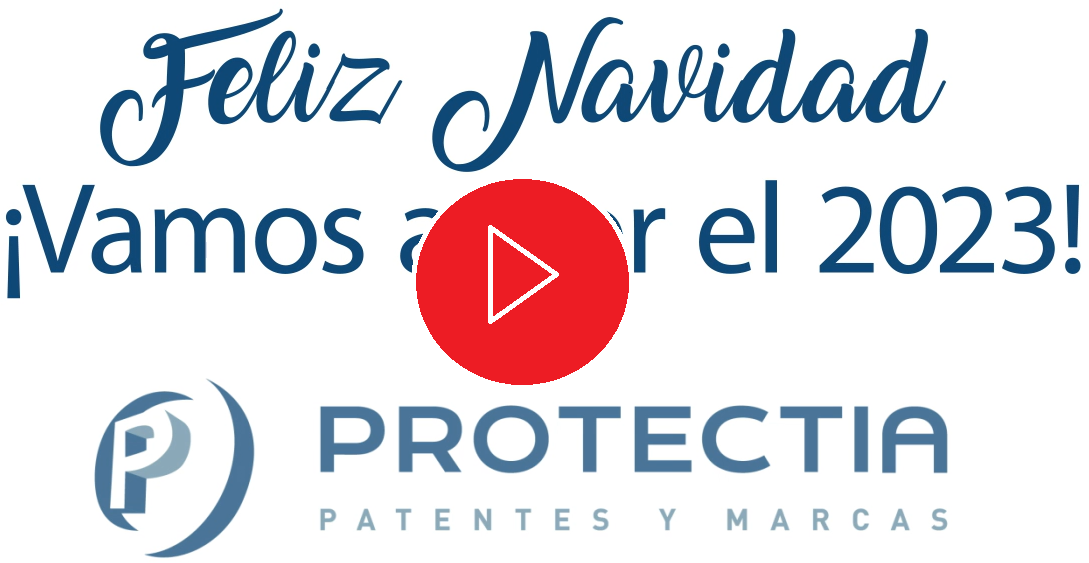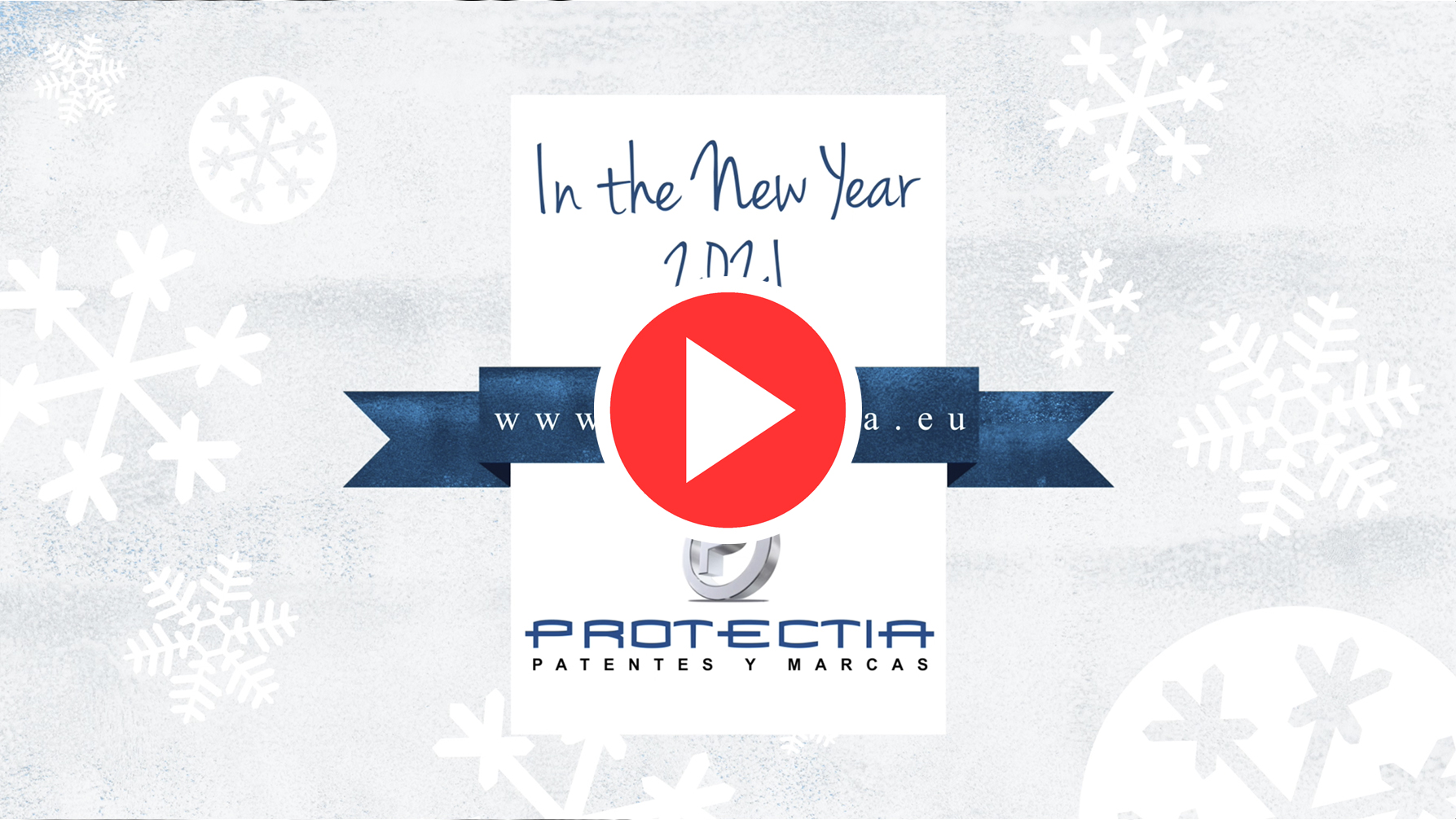Validations of european patents. Agreement for Granting European Patents of 5 October 1973 states that, once the European Patent Office (EPO) publish the Mention of Grant of a European Patent, the same has to be validated in those countries (members of the European Patent Convention), which are of the interest of the owner.
The period that a holder of a European Patent has for validating its invention is, in most of the countries, three months from the publication of the Mention of Grant.
Therefore, the latest step in the European Patent procedure, it will always be the transfer of the patent to each one of the chosen countries, where it will be considered as a patent granted in its own Official Patent Office.
Validations of european patents. Contracting states members
The of the European Patent Convention (EPC), are the following:
| CODE | EPC MEMBER STATE | SINCE |
| AL | Albania | 1 May 2010 |
| AT | Austria | 1 May 1979 |
| BE | Belgium | 7 October 1977 |
| BG | Bulgaria | 1 July 2002 |
| CH | Switzerland | 7 October 1977 |
| CY | Cyprus | 1 April 1998 |
| CZ | Czech Republic | 1 July 2002 |
| DE | Germany | 7 October 1977 |
| DK | Denmark | 1 January 1990 |
| EE | Estonia | 1 July 2002 |
| ES | Spain | 1 October 1986 |
| FI | Finland | 1 March 1996 |
| FR | France | 7 October 1977 |
| GB | United Kingdom | 7 October 1977 |
| GR | Greece | 1 October 1986 |
| HR | Croatia | 1 January 2008 |
| HU | Hungary | 1 January 2003 |
| IE | Ireland | 1 August 1992 |
| IS | Iceland | 1 November 2004 |
| IT | Italy | 1 December 1978 |
| LI | Liechtenstein | 1 April 1980 |
| LT | Lithuania | 1 December 2004 |
| LU | Luxembourg | 7 October 1977 |
| LV | Latvia | 1 July 2005 |
| MC | Monaco | 1 December 1991 |
| MK | Former Yugoslav Republic of Macedonia | 1 January 2009 |
| MT | Malta | 1 March 2007 |
| NL | Netherlands | 7 October 1977 |
| NO | Norway | 1 January 2008 |
| PL | Poland | 1 March 2004 |
| PT | Portugal | 1 January 1992 |
| RO | Romania | 1 March 2003 |
| RS | Serbia | 1 October 2010 |
| SE | Sweden | 1 May 1978 |
| SI | Slovenia | 1 December 2002 |
| SK | Slovakia | 1 July 2002 |
| SM | San Marino | 1 July 2009 |
| TR | Turkey | 1 November 2000 |
| Extension states | ||
| BA | Bosnia and Herzegovina | |
| ME | Montenegro |
Regarding the extension states, we would like to briefly comment that once the patent is granted, to be able to validate in those countries, they have to have been designated expressly during the procedure.
The main point to mention on this regards is, that there is just one Official fee to pay during the European patent procedure for designating all the EPC member states, except for the above two mentioned Extension States, which have an individual Official fee that you will have to pay separately if you want to validate in those countries in the future.
On the other hand, it is important to highlight that not all the countries accept one of the three Official Languages of the EPO (German, French and English). Therefore one of the most frequent requests of the member states is to file a translation of the patent into the official language of the corresponding country; furthermore, in some countries it will be necessary to name a national Industrial Property Agent to represent the proprietor.
The only six member states that no need to file a translation of the patent in their Official Patent Offices are: France, Germany, Luxembourg, Monaco, Switzerland/Liechtenstein and the United Kingdom. The European patent automatically confers on its proprietor from the date the mention of grant is published in the European Patent Bulletin, the same rights as would be conferred by a national patent granted in that state.
On the other hand, it has to be taken into account that once the patent is granted, there is a period of nine months from the publication of the Mention of Grant, for third parties to file oppositions against the recently granted patent. In those cases, the Decision of the oppositions will be transmitted to each national Office.
This procedure of validation cause a great expenses to the companies that, after having gone through the whole European Patent procedure, have to translate their patents into the official languages of the most of the countries where they are interested in validate.
Furthermore, in the case that an infringement of the patent arises in one country, the owner will have to go to Court in each country where the patent has been violated.
Validations of european patents. New coming procedure
We must mention that all those inconveniences are about to be solved since the European Council on 29 June concluded the negotiations on the EU’s future unitary patent system.
This unitary patent will imply that, instead of applying for patent in 27 member states, they can now apply in one place.
The seat of the Central Division of the Court of First Instance of the Unified Patent Court (UPC), along with the office of the President of the Court of First Instance, will be located in Paris.
Thematic clusters will be created in two sections of the Central Division, one in London (chemistry, including pharmaceuticals, classification C, human necessities, classification A), the other in Munich (mechanical engineering, classification F).
Validations of european patents. Single patent litigation system:
The Unified Patent Court will have exclusive competence in respect of actions relating to the validity or infringement of a European unitary patent.
This will eliminate the risk of multiple patent lawsuits in different member states concerning the same patent, as well as the risk that court rulings on the same dispute might differ from one member state to another.
In addition, the single system will bring down patent litigation costs for businesses significantly. The European Commission has calculated that, with the single court, litigation expenses incurred by European companies can be reduced by approximately 289 million euro each year.
Validations of european patents. Simplified validation and linguistic regime:
The Unified Patent Court is part of the future unitary patent system in the EU. The other two elements are: a regulation on the unitary patent itself and a regulation on translation arrangements for that patent.
The future unitary patent would be valid in all participating member states and be obtained with a single application. The use of languages would draw inspiration from the current system managed by the European Patent Office, where the working languages are English, French and German, and this will cut down the costs of acquiring patent protection.
Finally, we must to highlight that the only two countries that do not agree with the decision of the unitary patent are Spain and Italy because of linguistic discriminations; those countries have filed an appeal before the European Court.
Consequently, the project of create a Unified Patent Court has go back to the European Parliament, where it will be discuss the procedure to follow and the calendar of actions.
¿Are you interested in an european patent validation?




